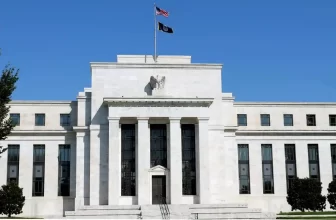
The UBS-Credit Suisse Rescue: Unraveling the Implications for Banks, Shareholders, and Investors
1. Introduction: UBS’s Credit Suisse Rescue in the Spotlight
The financial world has been abuzz with discussions surrounding UBS’s recent rescue of Credit Suisse’s struggling investment banking division. This bold move, which signifies the culmination of a long-standing rivalry between the two Swiss banks, has far-reaching implications for the banking industry, shareholders, and investors. This article delves into the details of the rescue and dissects its potential impact on various stakeholders.
2. Background: The Rivalry That Set the Stage
For years, UBS and Credit Suisse have been engaged in fierce competition within the investment banking sector. Credit Suisse’s decision to make a series of high-risk bets eventually backfired, leading to its investment banking division’s decline and paving the way for UBS’s intervention.
3. Credit Suisse Rescue Deal: Terms and Conditions
As part of the rescue agreement, UBS will assume control of Credit Suisse’s investment banking division and absorb its associated losses. The deal also entails UBS taking on the division’s staff, although the exact number of jobs retained remains uncertain. The acquisition is slated for completion within the next few months.
4. Financial Sector Implications: A New Swiss Landscape
Dive deep into the recent fluctuations in Deutsche Bank shares following the credit default swaps blow-out, understand the factors behind this volatility, and explore potential future implications for the bank and the financial market
The UBS-Credit Suisse rescue has significant ramifications for the financial sector, particularly within Switzerland. As UBS emerges as the dominant player in the Swiss investment banking market, the sector is likely to experience consolidation. This development may trigger a ripple effect, with other regional banks struggling to compete against UBS’s newly bolstered position.
5. Shareholder Impact: Short-Term Pain, Long-Term Gain?
In the short term, Credit Suisse’s shareholders may see the bank’s share price suffer as investors react to the news of the rescue deal. However, the longer-term outlook could be more favorable, as Credit Suisse refocuses on its core wealth management business, potentially yielding positive outcomes for shareholders.
6. Investor Consequences: Navigating a Consolidating Sector
The UBS-Credit Suisse rescue is poised to affect investors, particularly those with stakes in other Swiss banks. Concerns may arise regarding the potential for increased consolidation in the sector, which could make it more difficult for smaller banks to remain competitive.
7. Investment Banking’s Future: Lessons Learned
The rescue of Credit Suisse’s investment banking division raises critical questions about the industry’s future. It underscores the perils of high-risk bets and highlights the need for more stringent regulation. Additionally, the situation demonstrates the importance of diversification and maintaining a robust core business to withstand economic turbulence.
8. Conclusion: A Turning Point for Swiss Banking
UBS’s rescue of Credit Suisse’s investment banking division serves as a pivotal moment for the Swiss banking sector. The move will inevitably shape the industry’s future and influence the strategies of banks, shareholders, and investors in navigating this changing landscape.






